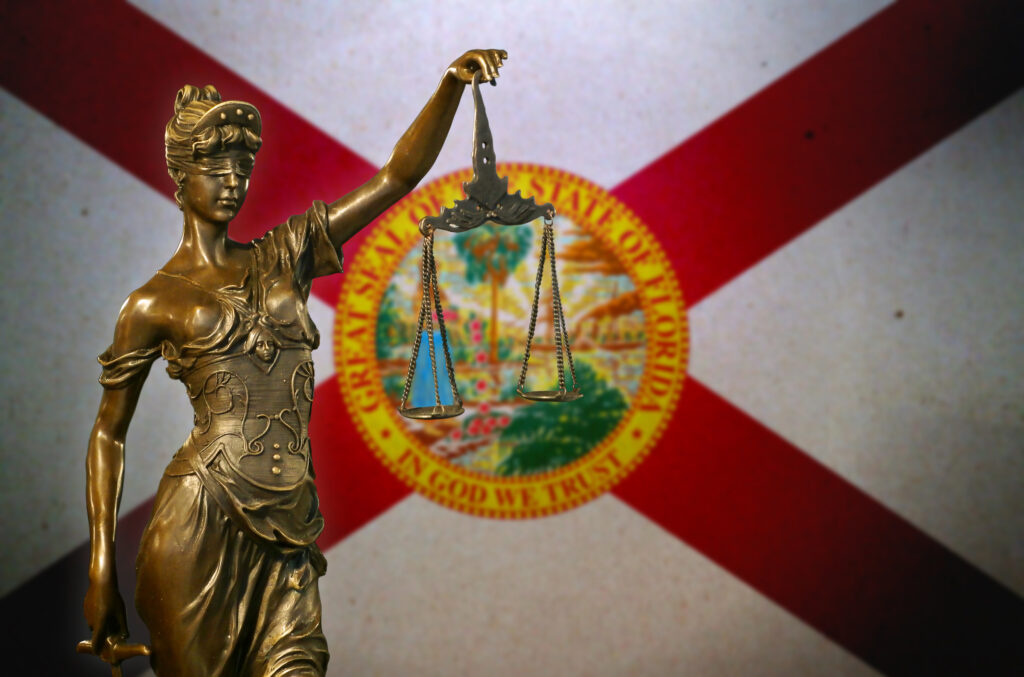Foreign entities are exploiting the lack of transparency in our legal system by funding litigation to undermine our economic and national security. The recent case against ExxonMobil, initiated by the California attorney general and several nonprofits, is the most recent example of this troubling problem. An Australian billionaire and owner of Fortescue Energy allegedly used his nonprofit subsidiary, the Intergenerational Environment Justice Fund (IEJF), to fund litigation against ExxonMobil to benefit his rival business ventures. This case, which accuses ExxonMobil of misleading the public about its plastics recycling initiatives, is not just a legal battle over environmental claims. It is also a stark example of how foreign interests can exploit the U.S. legal system to advance their own economic and political agendas. In response, ExxonMobil has filed a federal lawsuit against the parties involved, alleging defamation, business disparagement, tortious interference, and civil conspiracy. What is revealed in ExxonMobil’s countersuit highlights the need for greater transparency and regulation of foreign TPLF to protect the integrity of the American legal system through legislation, the enforcement of the Foreign Agents Registration Act (FARA), and other reforms.
ExxonMobil Lawsuit: Fighting Back Against Foreign Influence
ExxonMobil’s countersuit, filed in the Eastern District of Texas, names the California attorney general, several nonprofits (Sierra Club, Surfrider Foundation, Heal the Bay, and San Francisco Baykeeper), and the Australian-based IEJF as defendants. The complaint alleges that the private domestic entities, whose lawsuits allegedly are funded and influenced by the IEJF, have engaged in a coordinated smear campaign against ExxonMobil to undermine its advanced recycling initiatives and harm its business reputation.
The lawsuit accuses the IEJF, a subsidiary of the Australian billionaire’s Minderoo Foundation, of orchestrating this campaign to serve his business interests. His company, Fortescue Energy, competes with ExxonMobil in the Low Carbon Solutions and energy transition sector, and he has allegedly used the IEJF to fund litigation and public relations efforts aimed at discrediting ExxonMobil. According to the complaint, the IEJF hired the California law firm Cotchett, Pitre & McCarthy to sue ExxonMobil and to recruit U.S.-based environmental nonprofits to serve as plaintiffs in the case and thus act as proxies for its agenda. Notably, the Department of Justice (DOJ) concluded that Cotchett was required to register as a foreign agent under the FARA, which ultimately revealed the foreign influence behind the lawsuit.
ExxonMobil’s countersuit outlines several causes of action, including defamation and business disparagement, citing false and misleading statements allegedly made by the defendants about its advanced recycling technology. The company also alleges tortious interference with its existing and prospective business relationships, claiming that the defendants’ actions have caused customers and partners to back away from contracts and collaborations. Finally, ExxonMobil’s lawsuit accuses the defendants of civil conspiracy, arguing that their coordinated efforts were designed to harm its business and advance the interests of foreign competitors.
The Role of Foreign-Sourced TPLF in the Case
At the heart of this litigation is the issue of foreign-sourced TPLF, which allows foreign entities to fund lawsuits in the U.S. without disclosing their involvement. In this case, the IEJF’s funding of the suit against ExxonMobil raises significant concerns about the motivations behind the litigation. As ExxonMobil’s complaint points out, the IEJF is closely tied to Fortescue Energy, a company that directly competes with ExxonMobil in the hydrogen energy market. By funding litigation that could harm ExxonMobil’s business, the complaint alleges that IEJF is using the U.S. legal system as a tool for Fortescue Energy to gain a competitive advantage.
The opaque nature of TPLF in general and foreign-sourced TPLF in particular allows foreign entities to pursue litigation that may align with their geopolitical or economic interests. In the litigation it is funding against ExxonMobil, the IEJF’s involvement appears to be less about environmental justice and more about advancing the business interests of Fortescue Energy.
Why Foreign-Sourced TPLF is Problematic
The ExxonMobil case highlights several broader issues with foreign-sourced TPLF. First, it undermines the fairness of the U.S. legal system by allowing foreign entities to influence litigation outcomes without transparency or accountability. In this case, the IEJF’s funding of the lawsuit against ExxonMobil allegedly has created a situation where a foreign competitor can use the U.S. courts to harm an American company, rather than competing on the merits of innovation and market performance.
Second, foreign TPLF can have significant economic and national security implications. If successful, the litigation against ExxonMobil could force the company to scale back its advanced recycling operations, disrupting supply chains, harming American workers, and increasing costs for American consumers. Moreover, the case could set a dangerous precedent for other foreign entities to use TPLF to target U.S. companies in strategic industries, such as energy and technology.
Third, like domestic-sourced TPLF, foreign TPLF poses the risk of the misappropriation of intellectual property or other confidential information—but with the added harm that this property can end up in the hands of a foreign rival or foreign government.
Finally, foreign TPLF can exacerbate existing tensions in the U.S. legal system by funding divisive litigation. As the head of the DOJ’s FARA unit has noted, foreign litigation funders may seek to “inflame tensions and sow division among the U.S. public.” This is particularly relevant in cases like this one, where the litigation touches on contentious issues such as climate change and corporate accountability.
The Need for Enforcement of the FARA and for Legislative Reform
ExxonMobil’s lawsuit calls attention to the urgent need for transparency and other reforms to address the risks posed by foreign-sourced TPLF. One critical step is to require mandatory disclosure of all third-party litigation funding, particularly when the funder is a foreign entity. Such transparency would allow courts, regulators, and the public to assess the motivations behind a lawsuit and its potential implications.
To this end, the DOJ should continue its enforcement of the FARA in the context of foreign TPLF. And it should apply the FARA in other contexts where foreign litigation funding is present, such as when foreign government-owned sovereign wealth funds are underwriting (and potentially influencing) litigation against American companies. The behind-the-scenes involvement of a foreign litigation funder—and ultimately, its close relationship with a foreign business rival of ExxonMobil—would not have been known but for the transparency that was required by complying with the FARA.
In the Congress, two pieces of legislation that could help address this problem are the Protecting Our Courts From Foreign Manipulation Act (POCFMA) and the Litigation Transparency Act (LTA), both of which were introduced in the last Congress. The LTA was just reintroduced in the current 119th Congress, and it is expected that the POCMFA will be reintroduced soon. The LTA would require the disclosure of litigation funding in all cases in federal court, including foreign litigation funding. The POCFMA is focused on foreign litigation funding and would require the disclosure of foreign entities that fund lawsuits in the U.S. It also would ban foreign governments from funding litigation. And it would strengthen oversight mechanisms to ensure that foreign interests cannot exploit the U.S. legal system to advance their own agendas. These bills would provide much-needed transparency, accountability and other safeguards to ensure the integrity of the American justice system.
Bottom Line
The facts revealed in ExxonMobil’s lawsuit highlight the dangers of foreign-sourced TPLF, which allows foreign entities to fund litigation that serves their own economic and political agendas, often at the expense of American businesses, workers, and consumers.
To safeguard the integrity of the U.S. legal system, law enforcement must use current authorities like the FARA and policymakers must enact additional reforms like the LTA and POCFMA to increase transparency and accountability in litigation funding. Without such tools, the U.S. legal system risks becoming a forum for foreign interests to undermine the principles of fairness and justice that it is meant to uphold.



